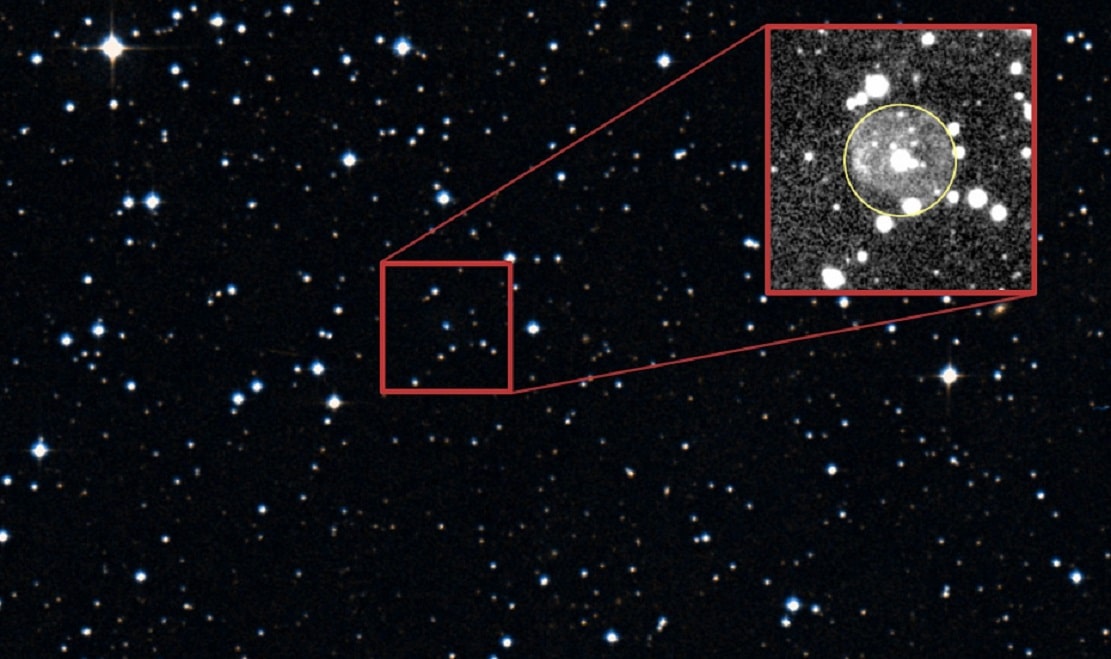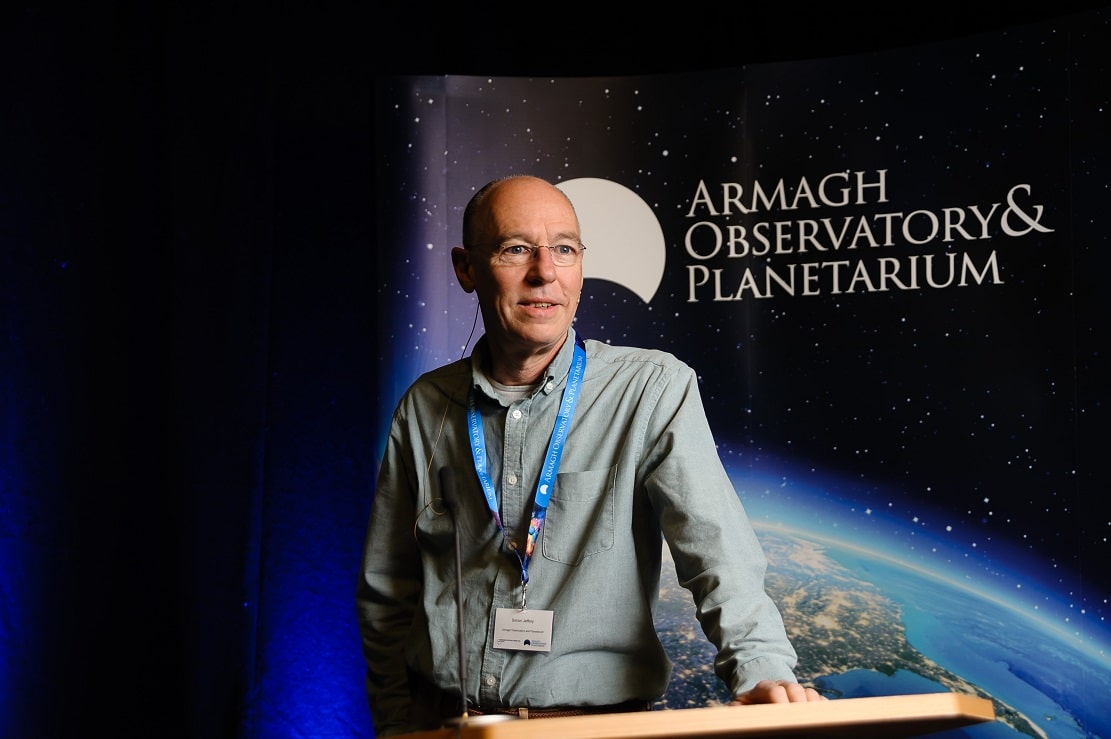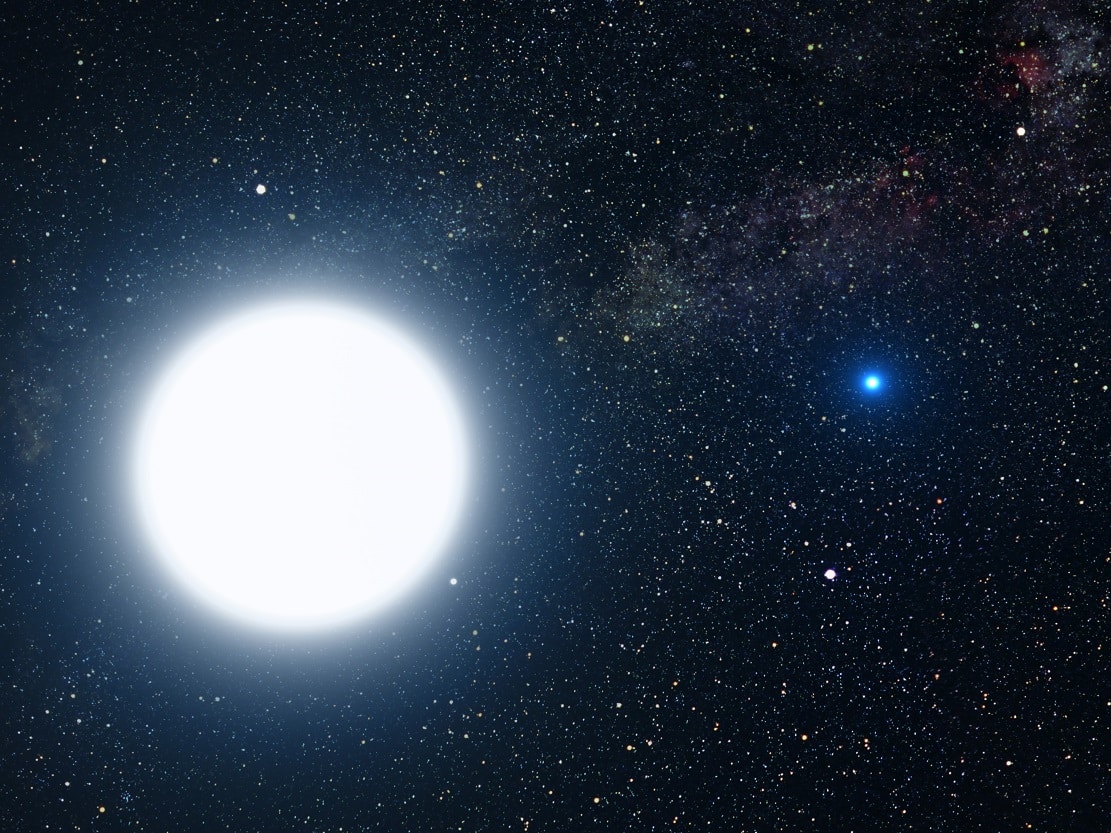
Armagh Observatory and Planetarium (AOP), has co-authored a research paper that announces the discovery of eight new and very hot stars with effective temperatures exceeding 100,000K.
Published by the Royal Astronomical Society, the paper is based on data gathered using the Southern African Large Telescope (SALT). It was written by astronomers from AOP, the University of Tuebingen in Germany, the University of the Western Cape and the University of Cape Town in South Africa, and the Australian Astronomical Optics Laboratory.
The study describes how a survey of helium-rich subdwarf stars led to the discovery of several very hot white dwarf and pre-white dwarf stars, the hottest of which has a surface temperature of 180,000K. For comparison, the Sun’s surface is a mere 5,800K.
One of the stars identified is the central star of a newly discovered planetary nebula, which is one light year in diameter. Two of the others are pulsating, or ‘variable’ stars. All of these stars are at an advanced stage of their life cycle and are approaching death as white dwarfs.
White dwarfs are roughly the same size as planet Earth, but a million times more massive. They are the densest stars in existence that consist of normal matter. Pre-white dwarfs are a few times bigger and will shrink to become white dwarfs within a few thousand years.
Simon Jeffery, an astronomer at Armagh Planetarium, who led the research, said: “Stars with effective temperatures of 100,000K or higher are incredibly rare. It was a real surprise to find so many of these stars in our survey. These discoveries will help to increase our understanding of the late stages of stellar evolution and demonstrate that SALT is a fantastic telescope for our project.

Simon Jeffery, Astronomer at Armagh Observatory and Planetarium
“It has been exciting to work with an experienced team, who collectively enabled the discovery of the stars, the analysis of their atmospheres, and the discovery of pulsations and a nebula in a very short space of time.”
Each of these new discoveries is more than one hundred times brighter than the Sun, but also between 1,500 and 22,000 light years away.
The University of Tuebingen’s Professor Klaus Werner, who co-authored the paper, added: “I am proud to have helped develop this ground-breaking research.
“The discovery of eight very hot white dwarf and pre-white dwarf stars, along with a new planetary nebula is hugely significant and we hope that these findings will help to shed new light on the formation of our galaxy.”
Situated at the South African Astronomical Observatory (SAAO) field station, about 400 km from Cape Town, the Southern African Large Telescope (SALT) is the largest single optical telescope in the Southern Hemisphere. AOP is a shareholder in SALT and has guaranteed observing time on the telescope.

An artist’s impression of Sirius A and B. Credit NASA ESA and G. Bacon
Dr Itumeleng Monageng, of the Department of Astronomy, University of Cape Town, and South African Astronomical Observatory, said:
“It is an honour to have played a part in this incredible discovery. The SALT survey of helium-rich hot subdwarfs was intended to explore evolutionary pathways amongst groups of highly evolved stars.
“It is fascinating to have discovered eight new extremely hot stars in the process, one of which is surrounded by a planetary nebula.”
Read more: Armagh Observatory records sunniest November in almost 100 years
Armagh Observatory receives UK-wide museum accreditation
Diversity accolade recognises inclusive culture at Armagh Observatory and Planetarium






